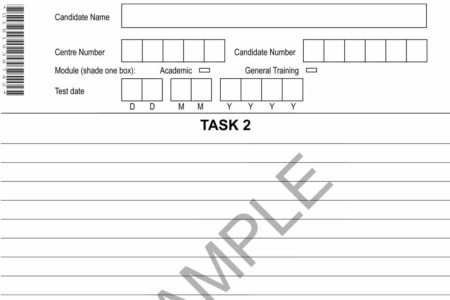
Here are our latest writing tips for English proficiency exams. We have already given reading tips and speaking tips to help English test takers get better results in an English level test. This week we are looking at the writing component and giving advice for those taking official English exams.
What do English writing tests include?
[Last updated on 25/07/2018]
English writing exams are designed to assess your English level with different writing tasks. This can include:
- writing short messages, postcards or emails (in lower level exams);
- describing information that is presented visually – the visual information could involve a graph, chart, diagram, or table etc;
- writing an article, review or report about a given topic and to a target reader;
- presenting an organised and well-supported argument – the test taker is given an opinion or problem that is related to a specific topic;
- writing a letter in response to a specific situation, which may be formal, neutral or informal.
Some English writing exams have one test for all levels (e.g. IELTS, Pearson PTE) and are divided into two areas, Academic English or General English. Other writing tests may have slightly different tasks if the exam is designed for a specific level. For, example, the Cambridge Key (KEY) exam is targeted at English level A2, and has simpler writing tasks than the Cambridge First (FCE), which is for English level B2.
Therefore, we recommend that you first consider why you need to take the test (e.g. for study, work or visas), and this will help you to decide which test is most suitable for your requirements. Here is our comparison of English proficiency examinations that are available.
What does an English writing exam assess?
In an English writing test, you are required to complete specific written tasks, and each provides guidance on the number of words that you should use. Your English writing skills will then be assessed to decide your English level of proficiency. Examiners have specific criteria to determine your English level, and these normally include the following areas:
Task achievement (Content)
- How well do you complete the task that you are asked to do?
- Is the writing content relevant to the actual task?
Grammar
- Does your writing show a good range of grammar?
- Is your grammar accurate and appropriate for the task?
Vocabulary
- Does your writing show a good range of vocabulary?
- Is your vocabulary accurate and appropriate for the task?
Coherence and cohesion (Organisation)
- Do you structure your writing in a logical sequence (e.g. use of paragraphs for an introduction, main body and conclusion)?
- How well do you link ideas and information in clauses and from sentence to sentence?
Writing tips for English proficiency exams
BEFORE THE EXAM
1. Familiarise yourself with the format of the writing test in advance
The writing exam will be more difficult if you have not researched the format. Key points to check are the length of time, the number of tasks and the type of tasks that are included in the exam.
2. Find examples of the writing tasks for the relevant exam.
The same types of tasks and topics are used in English writing exams (e.g. an email or letter, describing information, providing a well-supported argument). There are examples of specific exam papers online and in books that you can read in advance.
3. Prepare by practising writing
The best way to improve your writing skills and timing for the exam is to practise answering specific exam questions in a set time. Sample examination papers often come with suggested answers or actual examples taken from test takers who sat the exam. Therefore, you will be able to compare your written work and set targets. You can also consider enrolling in an exam preparation course so that a qualified English teacher can read your work, make corrections and give feedback to help you to develop faster.

DURING THE EXAM
4. Write clearly
Try to write clearly and naturally in the exam because examiners have a limited time to assess each exam paper. You need to make sure that your writing is easy to read, and don’t just write everything in capital letters – this is not natural either!
5. Pay attention to the time
It is important to keep an eye on the time, because the first writing task usually requires less words and is not as valuable for the exam results as the second writing task. For example, a writing task with a guideline of 20 minutes and 150 words is worth less than a task with a guideline of 40 minutes and at 250 words.
6. Think and plan
In any language, it is normal to identify the key points and make notes of our ideas before we start writing (e.g. for a letter, essay or assignment). We recommend spending a few minutes to analyse the questions, underline key points and plan the structure of your answer. This can also be a useful way to make sure that you complete the task that you are asked to do. In other words, preparation with notes can help to ensure that you answer the question that you are given!
7. Think about your target audience to decide the style of writing
Each writing task indicates the style of writing that you need to use. If you are writing a personal email to friend, then your writing can be more informal. However, if you are writing a complaint letter, the style of writing will need to be more formal. Alternatively, some essays require an academic focus.
8. Use a variety of English grammar
The writing task gives you the opportunity to demonstrate your ability to use English grammar to the examiner. Can you show a good range of grammar, and use it accurately with different structures?
9. Use a variety of English vocabulary
You should also show your knowledge of English vocabulary in the English writing exam. Do you have a wide range of vocabulary with accurate spelling and word formation? This can include expressions, collocations, phrasal verbs etc.
10. Provide a logical sequence that links ideas and information together
Remember that examiners will also assess how well you organise your writing. Therefore, one of our key writing tips for English proficiency exams, is to make sure that you provide a logical sequence in your answer and use paragraphs accurately. You also need to link ideas to previous sentences smoothly and appropriately (e.g. with words and expressions such as firstly, in addition, on the other hand etc).

For example, if you are presenting an argument in an essay, here are our tips for writing for a logical sequence and linking ideas:
Introduction
Introduce the topic, make a reference to the key points in the task, and explain the focus of your essay.
Main body
Write two or three paragraphs to support your arguments or opinions. Give the main idea at the start of each paragraph. Support the idea with examples and explanations. End the paragraph with your opinion. Use one paragraph for each key point (e.g. separate reasons to support your argument, or by advantages and disadvantages).
Conclusion
Do not use the final paragraph to introduce new information. Summarise the key points from the essay (e.g. with expression such as in conclusion, to sum up) and give your final or overall opinion.
Ideas to improve your English writing skills
Read a variety of English texts for examples of writing
We all learn from good examples and reading is a great way to see different styles of writing. This demonstrates how the text is organised (e.g. in an email, articles and reviews), and gives ideas of how to use paragraphs and link sentences.
Practise writing as much as possible
We recommended that you take practice tests for the relevant English proficiency exam within the time limit. Some resources will also give you sample answers and the results so that you can compare
Which proficiency exam is best for you?
You can you can start today by trying our English level test. There is one test for all English levels (A1 - C2), with 60 questions and only 40 minutes. This can help you to find out your level and decide the best option. We also provide more information about official English exams and recommended materials that will help you prepare.
It can also be beneficial to take an English exam preparation course with a qualified English teacher. This is the best way to get feedback and improve your language skills for the examination day.
Good luck!